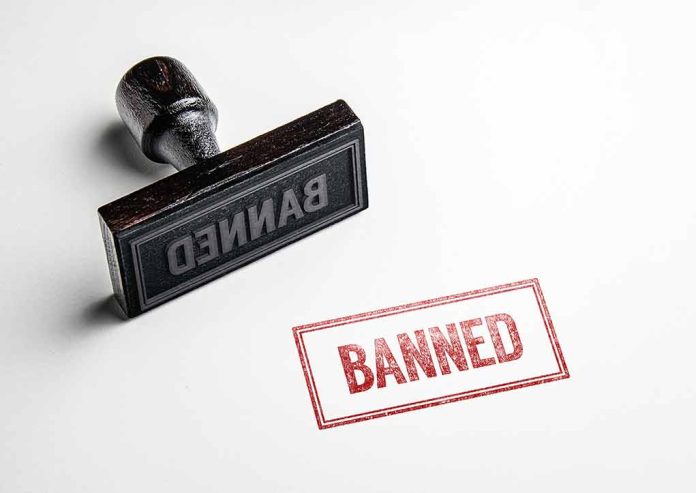
Nebraska will be the first state to ban soda and energy drinks for over 152,000 food stamp recipients as part of the Trump administration’s aggressive push to reform welfare nutrition policies.
Key Takeaways
- Nebraska becomes the first state to receive a federal waiver to ban the purchase of soda and energy drinks with SNAP benefits, taking effect January 1
- Approximately 152,000 Nebraska SNAP participants will be affected by the policy change targeting improved nutrition and health outcomes
- Six other states have submitted similar waiver requests, signaling a broader conservative shift toward welfare reform under the Trump administration
- Critics argue the restrictions add stigma and administrative burdens, while supporters claim taxpayers shouldn’t subsidize unhealthy choices
- The historic waiver represents a significant shift in federal welfare policy after previous rejections of similar requests
Nebraska Takes Bold Step to Reform Food Stamps
Nebraska is leading the way in welfare reform by becoming the first state to receive federal approval to ban soda and energy drinks from being purchased with Supplemental Nutrition Assistance Program (SNAP) benefits. The historic waiver, announced by U.S. Agriculture Secretary Brooke Rollins, will impact roughly 152,000 SNAP participants in Nebraska and takes effect on January 1. The move represents a significant shift in federal policy after years of similar requests being rejected by previous administrations.
Nebraska Governor Jim Pillen strongly supports the waiver, emphasizing that it aligns with SNAP’s fundamental purpose of providing truly nutritious food to families in need. The initiative aims to combat health issues associated with sugary beverages while ensuring taxpayer dollars fund only wholesome food options. This policy change reflects the Trump administration’s broader focus on promoting healthier eating habits among welfare recipients while ensuring benefit dollars are spent appropriately.
Administration Prioritizes Health in Welfare Reform
The Nebraska waiver represents a cornerstone of the Trump administration’s welfare reform strategy. Agriculture Secretary Rollins described the move as “a historic step to Make America Healthy again,” highlighting the administration’s commitment to addressing poor nutrition in government assistance programs. The initiative to ban sugary drinks and other non-nutritious items from SNAP has become a priority for both Rollins and Health Secretary Robert F. Kennedy Jr., signaling a coordinated approach to welfare reform.
“There’s absolutely zero reason for taxpayers to be subsidizing purchases of soda and energy drinks,” Nebraska Gov. Jim Pillen said in a statement. “SNAP is about helping families in need get healthy food into their diets, but there’s nothing nutritious about the junk we’re removing with today’s waiver.” Stated by Jim Pillen, Nebraska Gov
While the Nebraska waiver focuses specifically on soda and energy drinks, six other states have submitted similar requests to either ban certain foods or expand access to hot foods for SNAP participants. This growing movement indicates a broader shift in how states are approaching food assistance programs under the current administration. The $100 billion SNAP program, which serves approximately 42 million Americans, has long been criticized by conservatives for lacking sufficient nutritional standards.
Critics Push Back Against SNAP Restrictions
Despite support from conservatives, the policy change has drawn criticism from anti-hunger advocates who argue that the restrictions increase costs, create administrative burdens, and add stigma for those already facing food insecurity. Critics suggest that incentive-based approaches would be more effective than what they view as punitive restrictions. These competing viewpoints highlight the ongoing debate about the proper role of government in determining how welfare recipients spend their benefits.
“The waiver “ignores decades of evidence showing that incentive-based approaches — not punitive restrictions — are the most effective, dignified path to improving nutrition and reducing hunger,” said Gina Plata-Nino, a deputy director at the Food Research & Action Center, a nonprofit advocacy group.” Stated By Gina Plata-Nino
Historically, the USDA has rejected similar waiver requests due to lack of clear standards and concerns about implementation challenges. However, the Trump administration’s approval of Nebraska’s request signals a fundamental shift in welfare policy priorities. While specific implementation details have not yet been released, the January 1 effective date gives Nebraska officials time to develop systems for identifying restricted items and training retailers. This precedent-setting decision could pave the way for similar restrictions in other conservative states.
A New Era in Welfare Nutrition Policy
The Nebraska waiver represents more than just a ban on certain drinks – it marks a significant shift in the federal government’s approach to nutrition in welfare programs. For years, conservatives have argued that SNAP benefits should focus exclusively on nutritious foods. This move finally puts that principle into practice after decades of resistance from previous administrations. The success of Nebraska’s implementation will likely determine whether this approach spreads to other states and potentially becomes a nationwide standard.
With other states already submitting similar waiver requests, the Nebraska program will serve as a test case for this new approach to welfare reform. As the Trump administration continues to emphasize responsible spending and improved health outcomes in government assistance programs, SNAP recipients nationwide may soon see similar restrictions. The fundamental question remains whether these restrictions will achieve their stated goals of improving nutrition while maintaining dignity for program participants.







